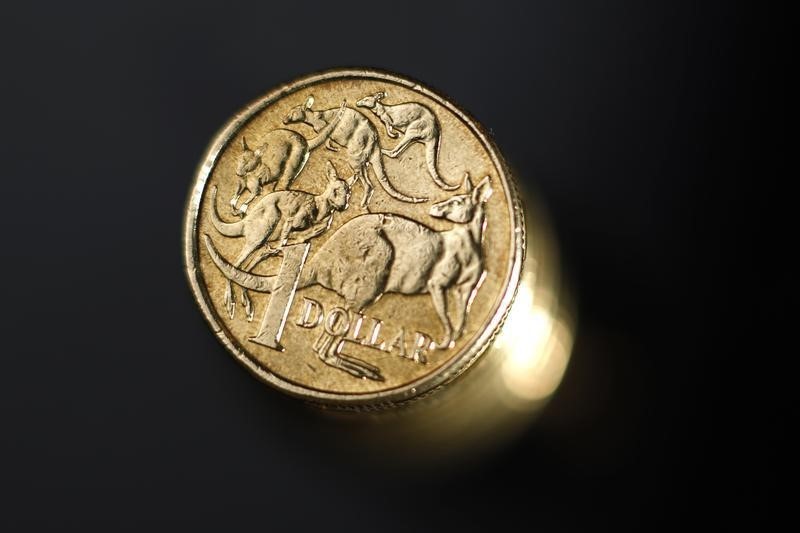Investing.com - The Aussie fell after weaker data on home loans and China inflation Wednesday and the yen gained as tensions on the Korean peninsula heightened.
AUD/USD traded at 0.7864, down 0.63%, while USD/JPY changed hands at 109.90, down 0.40%.
In Australia, home loans data rose 0.5% for June, compared with a 1.5% gain expected. China reported consumer and producer prices for July with CPI up 0.1%, compared to a 0.2% gain seen on month and at a 1.4% annual pace, compared to an expected 1.5% rise on year. PPI rose 5.5% as expected.
The U.S. dollar index, which measures the greenback’s strength against a trade-weighted basket of six major currencies, rose 0.02% to 93.50.
North Korea said it is considering plans for a missile strike on the U.S. Pacific territory of Guam. The strike plan would be put into practice at any moment once leader Kim Jong Un makes a decision, a spokesman for the Korean People's Army (KPA) said in a statement carried by the North's state-run KCNA news agency.
Overnight, the dollar traded higher against a basket of global currencies on Tuesday, after data showed U.S. job openings soared to a record high in June.
The dollar shrugged off earlier weakness to hit nearly two-week highs, after U.S. job openings, a measure of labor demand, increased 461,000 to a seasonally adjusted 6.2 million, the highest level since the series started in December 2000, the Labor Department said on Tuesday.
The bullish labor report reinforced the narrative of a solid U.S. labor market, following Friday’s better-than-expected nonfarm payrolls report, pointing to a stronger U.S. economy, bolstering the case for Federal Reserve to raise rates later this year.
St. Louis Fed President James Bullard suggested, however, that low interest rates are “likely to remain appropriate” over the near term.
"The current level of the policy rate is likely to remain appropriate over the near term," Bullard said Monday.
Inflation data later in the week, however, is expected to dominate moves in the dollar, with producer price index and the consumer price index data due Thursday and Friday respectively.
In the wake of rebound in the dollar, both the euro and sterling gave back some of their recent gains, with the latter falling for a second-straight day.
